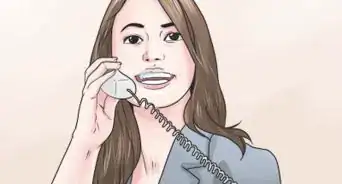X
wikiHow is a “wiki,” similar to Wikipedia, which means that many of our articles are co-written by multiple authors. To create this article, volunteer authors worked to edit and improve it over time.
This article has been viewed 22,677 times.
Learn more...
Age restricted purchases such as tobacco, alcohol, and lottery tickets are very popular. It's important for employees at stores that sell these items to ensure they're only selling to those that can legally buy them. Start at step one to learn how to card everyone professionally and accurately.
Steps
-
1Understand all laws pertaining to these sales. It's also important to know your store rules. Every store within every state is going to vary when it comes to these rules. Ask your manager if you're unsure what yours are.[1]
- Most state/federal law require a customer to look at least 27 or older to not be carded.
- Most retailers require a customer to be/look at least 40.
- Some retailers require all customers to be carded.
- All customers must be at least 18 to purchase tobacco or lottery. Some state laws are pushing or have pushed the age for tobacco to 21.
- All customers must be at least 21 to purchase alcohol in any form.
-
2Recognize the accepted forms of identification. These are the only types of legally recognizes IDs.
- Any state issued ID card/driver's licenses
- Current military/armed forces ID cards
- Passports/passport cards
- Green cards
- Foreign IDs
Advertisement -
3Evaluate the customer wanting to buy age-restricted products. Take a good look at their face, hair, and etc. Look for obvious signs of age (or lack thereof): beards, wrinkles, gray hairs, etc. Try not to stare but just give them a quick once over. If they look young enough or you have to card everyone keep going. Note this isn't always fool proof but is a good start.
-
4Ask for their ID firmly but politely. Try something like:
- "May I see your ID, please?"
- "Do you happen to have an ID that I could look at?"
- "Could you take your ID out please?"
- "I just need to scan/look at your ID please."
-
5Get the ID in your hands. A common trick tried by many is to just flash it at you, or keep it in the wallet. Ask for it again or for it to be taken out. Refuse the sale if they refuse. Many fake IDs will look real on the front, but be completely blank or just copied on the back. You may not be able to spot a difference, but you might feel a difference.
-
6Inspect the ID. Once you have it in your hands, give it a good once over. Try not to take too long. Some common things to look for include:
- Date of birth. Ensure they are overage. Most times this is located on the front. Military service IDs have it located on the back.
- Expiration date. Is it current? If it's expired you shouldn't accept it.
- Picture/description. Consider height, eye color, and the picture. Hair style changes, people lose/gain weight, but ensure that you are looking at the same person. Kids borrow parents' or friends' cards all the time.
- Evidence of tampering. Is it real? Look for variations of font color or size, flaking, lack of holographic state seals, blank backs, etc.
-
7Optional: Scan the barcode on the back if you have the means. This way the system will tell you if it's real if they're overage, and etc. You still need to make sure it's their ID if you do this but can cut down the inspection time.
-
8Hand the card back. So you don't forget, hand the card back immediately. If your register makes you type in their birthdate, do so while it's fresh in your mind.
-
9Refuse or carry on with the sale as needed. If you have any reason to doubt the sale, refuse it. You could try something like:
- "I'm sorry. I can't accept this ID do you happen to have another on you?"
- "I'm sorry. I can't sell this to you. You have to be (age) to buy this, and we could both get into a lot of trouble."
-
10Stay strong and do not relent. Some customers may yell at you or get angry for being carded or having their sale refused. Stay firm and do not give in. Explain that it's law, and/or company policy and that you could get fined or fired if you don't comply.
Advertisement
Warnings
- When in doubt, ask for ID. The consequences for selling to a minor are not worth it and can include up to $5,000 in fines, loss of job, and/or jail time minimum.[2] Asking for ID or refusing a sale is never wrong.⧼thumbs_response⧽
- Selling alcohol to a visibly intoxicated person is also illegal in many states.⧼thumbs_response⧽
Advertisement
References
About This Article
Advertisement
-in-US-Step-1-Version-2.webp)
-in-US-Step-2-Version-2.webp)
-in-US-Step-3-Version-2.webp)
-in-US-Step-4-Version-2.webp)
-in-US-Step-5-Version-2.webp)
-in-US-Step-6-Version-2.webp)
-in-US-Step-7-Version-2.webp)
-in-US-Step-8-Version-2.webp)
-in-US-Step-9-Version-2.webp)
-in-US-Step-10-Version-2.webp)




















































